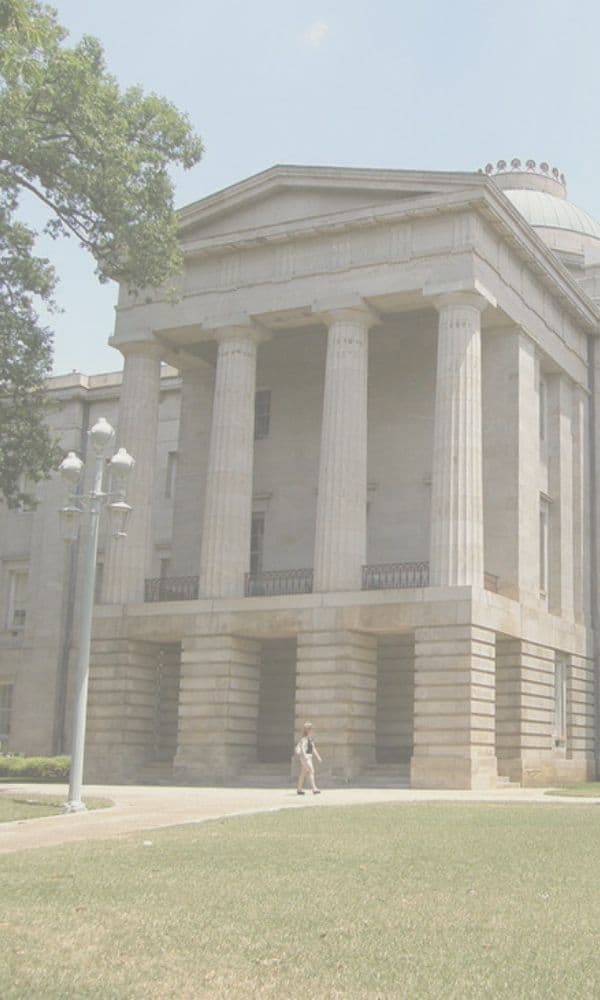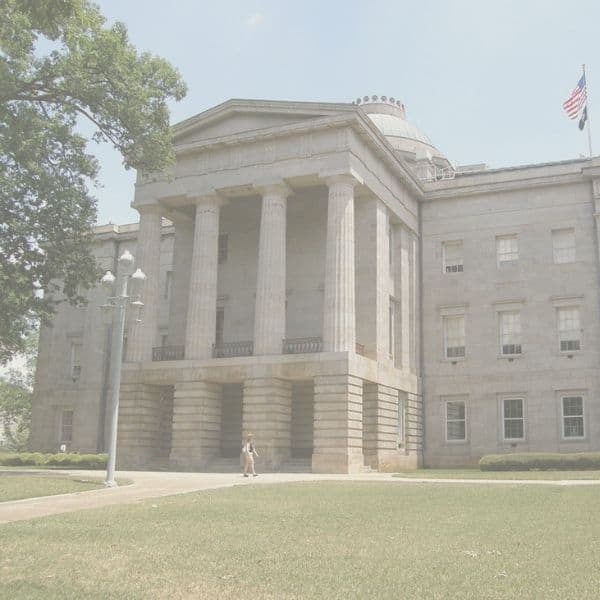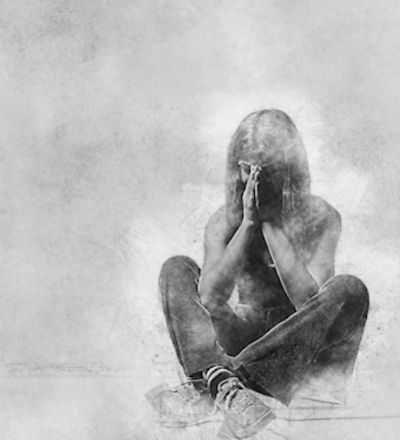Donate
These reports represent hundreds of hours of research by the Unsilenced Investigative Research Team. As you review this report, please consider donating. Your contribution will help us continue our work advocating for survivors and youth. Every donation makes an impact, no matter the size. Thank you for your support!
Completed by:
The Unsilenced Investigative Research Team
The Troubled Teen Industry in North Carolina
Impact Report
2022
Impact Report
2022
Introduction
The ‘troubled teen’ industry is a network of residential programs that claim to provide treatment for the behavioral and developmental needs of youth. The industry’s lack of transparency and accountability has led to widespread abuse of youth, resulting in hospitalizations, prolonged trauma and death.
Today, there are an estimated 120,000 – 200,000 minors in residential programs across the United States. These youth are placed each year by state child welfare agencies, juvenile justice courts, mental health providers, refugee resettlement agencies, school districts’ individualized education programs, and by parents.
Many of these youth have trauma histories, which are only exacerbated by being removed from their communities and institutionalized. Youth with lived experience describe these programs as being carceral, harsh, and abusive.
An estimated $23 billion dollars of public funds annually are used to place youth in residential programs. Daily rates for residential treatment ranges from $250-$800, costing up to $292,000 per year, per child.
It is overwhelmingly clear that our communities and agencies are over-relying on residential placements that are negatively impacting the youth they serve.
Introduction
The ‘troubled teen’ industry is a network of residential programs that claim to provide treatment for the behavioral and developmental needs of youth. The industry’s lack of transparency and accountability has led to widespread abuse of youth, resulting in hospitalizations, prolonged trauma and death.
Today, there are an estimated 120,000 – 200,000 minors in residential programs across the United States. These youth are placed each year by state child welfare agencies, juvenile justice courts, mental health providers, refugee resettlement agencies, school districts’ individualized education programs, and by parents.
Many of these youth have trauma histories, which are only exacerbated by being removed from their communities and institutionalized. Youth with lived experience describe these programs as being carceral, harsh, and abusive.
An estimated $23 billion dollars of public funds annually are used to place youth in residential programs. Daily rates for residential treatment ranges from $250-$800, costing up to $292,000 per year, per child.
It is overwhelmingly clear that our communities and agencies are over-relying on residential placements that are negatively impacting the youth they serve.

North Carolina Statistics
$100+
Million Dollars
North Carolina spends every year placing youth in Residential Facilities despite evidence indicating that these facilities are ineffective
$423
Per Day Per Child
North Carolina pays facilities on average, and advocates report that the state spends up to $800 per day for children with complex needs
4,308
Children Under 12
placed in residential facilities through Child Welfare programs in 2019
744
Juvenile Justice Youth
placed in residential facilities through Juvenile Justice programs in 2019
- 591 minors were committed to a residential facility as part of a court-ordered disposition
- 138 minors were detained in a residential facility while awaiting a court hearing, adjudication, disposition or placement elsewhere
- 6 minors were voluntarily admitted to a residential facility in lieu of adjudication as part of a diversion agreement

North Carolina Statistics
$100+
Million Dollars
North Carolina spends every year placing youth in Residential Facilities despite evidence indicating that these facilities are ineffective
$423
Per Day Per Child
North Carolina pays facilities on average, and advocates report that the state spends up to $800 per day for children with complex needs
4,308
Children Under 12
placed in residential facilities through Child Welfare programs in 2019
744
Juvenile Justice Youth
placed in residential facilities through Juvenile Justice programs in 2019
- 591 minors were committed to a residential facility as part of a court-ordered disposition
- 138 minors were detained in a residential facility while awaiting a court hearing, adjudication, disposition or placement elsewhere
- 6 minors were voluntarily admitted to a residential facility in lieu of adjudication as part of a diversion agreement
A North Carolina Problem
A team of researchers reviewed 230 studies of residential treatment facilities from around the nation and found there was no evidence that they were effective.
North Carolina has 328 Licensed Residential Facilities with a total capacity of 4,028 minors
The facility types with the highest capacity for housing minors in North Carolina are:
- Residential Child Care Facilities with a capacity of 1,607 minors
- Staff-Secure Residential Treatment Facilities with a capacity of 1,212 minors
- Residential Therapeutic Camps with a capacity of 301 minors
North Carolina in a one-year period shipped at least 227 kids in foster care to psychiatric residential treatment facilities in other U.S. states, including centers with a history of allegations of abuse and mistreatment

Illustration by Spencer Holladay, USA Today Network; Getty Images
“Many kids don’t get help. Others never needed institutional care in the first place.”
Fred Clasen-Kelly, Amritpal Kaur Sandhu-Longoria, Rachel Berry, Brad Zinn, Kristen Johnson, Brian Gordon
The Fayetteville Observer
Current Oversight
North Carolina requires Residential Facilities serving minors to obtain a license but does not provide adequate oversight. It is only a misdemeanor for a residential facility to operate without a license.
Robin Deacle, DHHS spokeswoman, reports “state regulators were not responsible for tracking abuse that happens inside group foster homes licensed by the state.”
Republican Senator Jim Burgin…
who oversees NCDHHS in his role on several legislative committees, described oversight in North Carolina as, “one of those situations where a lot of people are supposed to be doing things and, so, it’s kind of like everybody is responsible but nobody is responsible”
NCDHHS spokeswoman…
told WBTV in 2022 that the division does not disclose when child abuse—including sexual abuse—is reported inside a regulated facility.
Oversight bodies in the state
The North Carolina Department of Health and Human Services is responsible for licensing child-caring institutions and residential child-care facilities that serve minors. NCDHHS relies in part on assessments provided by the Council on Accreditation (COA), the Joint Commission (TJC), the Commission on Accreditation of Rehabilitation Facilities (CARF), and the Council on Quality and Leadership (CQL) when evaluating residential facilities for licensing.
Residential Maternity Homes are child-caring institutions that provide continuing full-time care for adolescent and adult women during pregnancy and after delivery when delivery takes place in a licensed hospital.These residential facilities are governed by 10A NCAC 70F and 10A NCAC 70K
Residential Child Care Facilities are placement resources for children with Level I needs These residential facilities are governed by 10A NCAC 70I and 10A NCAC 70J
DHHS spokeswoman Chris Mackey stated, “There is not a mandated time for NCDHHS to follow-up on the facility’s implementation of corrective action”
The Mental Health Licensure and Certification Section of the Division of Health Service Regulation is responsible for licensing and regulating mental health, substance abuse, intellectual disability and developmental disability facilities in North Carolina. NCDHSR relies in part on assessments provided by the Council on Accreditation (COA), the Joint Commission (TJC), the Commission on Accreditation of Rehabilitation Facilities (CARF), and the Council on Quality and Leadership (CQL) when evaluating residential facilities for licensing.
Intensive Residential Treatment facilities are locked 24‐hour residential settings that provide a structured living environment for individuals who need more intensive treatment and supervision than a Level III facility. These residential facilities are governed by 10A NCAC 27G:1800
PRTFs are residential facilities that provide care for children or adolescents who have mental illness or substance abuse/dependency in a non-acute inpatient setting. PRTFs provide a structured living environment for children or adolescents who do not meet criteria for acute inpatient care, but do require supervision and specialized interventions on a 24-hour basis. These residential facilities are governed by 10A NCAC 27G:.1900
A Residential Therapeutic Camp is a residential treatment facility provided in a camping environment which is designed to help individuals develop behavior control, coping skills, self-esteem and interpersonal skills. These residential facilities are governed by 10A NCAC 27G:5200
A Residential Treatment Facility is a Level III free-standing residential facility which provides a structured living environment within a system of care approach for children or adolescents who have a primary diagnosis of mental illness or emotional disturbance and who may also have other disabilities. These residential facilities are governed by 10A NCAC 27G:1300
A Staff Secure Residential Treatment Facility is a free-standing residential facility that provides intensive, active therapeutic treatment and interventions within a system of care approach. Staff secure means staff are required to be awake during client sleep hours and supervision shall be continuous. Minors served do not meet criteria for inpatient psychiatric services. These residential facilities are governed by 10A NCAC 27G:1700
A Supervised Living Program is a 24-hour facility which provides residential services to individuals in a home environment where the primary purpose of these services is the care, habilitation or rehabilitation of individuals who have a mental illness, a developmental disability or disabilities, or a substance abuse disorder, and who require supervision when in the residence. These residential facilities are governed by 10A NCAC 27G:5600B
A Supervised Living Program is a 24-hour facility which provides residential services to individuals in a home environment where the primary purpose of these services is the care, habilitation or rehabilitation of individuals who have a mental illness, a developmental disability or disabilities, or a substance abuse disorder, and who require supervision when in the residence. These residential facilities are governed by 10A NCAC 27G:5600D
Abuse and Neglect
Youth residing in Residential Facilities in North Carolina are at risk for abuse, neglect, and long-term harm.
Youth who previously resided in Residential Facilities in North Carolina describe experiencing degrading punishments in lieu of evidence-based treatments. One North Carolina teen stated, “The most traumatic and defining experience of my life was not my suicide attempt — it was how I was treated after. Seven years later, I’m still haunted by what happened there”
40 citations including sexual abuse…
Between January 2019 and April 2019, Carolina Dunes, a Residential Facility for minors in North Carolina, was cited 40 times for rules violations including allegations of sexual abuse.
Physical restraint and seclusion…
Between 2019 and 2021, workers at Residential Facilities for minors in North Carolina utilized physical restraints, seclusion or other restrictive interventions hundreds of times.
DHHS investigates death…
In 2014, a 17-year-old youth ran away from Trails Carolina, a therapeutic wilderness camp, and was found dead nearly two weeks later. In an interview with DHHS investigators after the youth’s death, a sheriff’s deputy involved in the search said rescue crews would have had a better chance of finding him alive had Trails staff not waited until after dark to call and report him missing
North Carolina allowed state funding for treatment programs that performed discredited conversion therapy on LGBTQIA minors until Governor Roy Cooper stopped the practice by executive order in 2019. Studies show that youth who undergo conversion therapy are twice as likely to commit suicide as their peers.
North Carolina released a report in March 2021 detailing that nurses at Strategic Behavior Health facilities gave children medications like Benadryl, Vistaril, Zyprexa and Thorazine injections without notifying doctors
2019 and 2020 data collected on selected residential treatment facilities in North Carolina revealed that less than a third of children discharged from the centers went to a community-based program, the desired goal. Some were sent to another psychiatric residential treatment facility, a possible sign that treatment failed.
Youth attending Trails Carolina, a wilderness therapy camp, were regularly refused contact with their parents despite a state law protecting this right. A June 2021 inspection by DCHHS indicated that the program failed to properly administer medications, did not allow participants to call their parents and had begun making physical improvements to the facility without permission from state regulators, which is required.
Youth who previously resided in Residential Facilities in North Carolina describe experiencing degrading punishments in lieu of evidence-based treatments. One North Carolina teen stated, “The most traumatic and defining experience of my life was not my suicide attempt — it was how I was treated after. Seven years later, I’m still haunted by what happened there“
Media Coverage
- Mar. 4, 2021 ‘You’d hear girls screaming, crying.’ Former clients, state allege abuses at Solstice East Asheville Citizen Times Fred Clasen-Kelly, Brad Zinn, Amritpal Kaur Sandhu-Longoria, Rachel Berry
- Apr. 7, 2021 North Carolina Still Allows Professionals to Practice Conversion Therapy on Minors IndyWeek Giulia Heyward
- May 24, 2021 ‘It’s beyond cruel’: Inside an N.C. wilderness therapy program for teens WBTV Nick Ochsner
- Jun. 10, 2021 Top DHHS regulator defends agency’s oversight of N.C. wilderness therapy programs WBTV Nick Ochsner
- Aug. 6, 2021 NC House counters Senate budget with more funding for mental health, home and community services NC Health News Rose Hoban
- Aug. 30, 2021 New inspection finds more problems at wilderness therapy camp for kids, teens WBTV Nick Ochsner
- Nov. 8, 2021 Punching, predators, neglect. Traumatized NC children suffer inside dismal psychiatric centers The Fayetteville Observer Fred Clasen-Kelly, Rachel Berry, Amritpal Kaur Sandhu-Longoria, Brad Zinn, Kristen Johnson, Brian Gordon
- Nov. 17, 2021 Psychiatric centers fail many children. North Carolina keeps spending gobs of money on them The Fayetteville Observer Fred Clasen-Kelly, Rachel Berry, Amritpal Kaur Sandhu-Longoria, Brad Zinn, Kristen Johnson, Brian Gordon
- Nov. 29, 2021 NC children suffer abuse at some psychiatric centers, ‘Locked Away’ investigation finds WFAE Lisa Worf
- Dec. 2, 2021 Garner mental health facility ‘just terrifying’ says NC teen News & Observer Julia Wall
- Dec. 3, 2021 Juvenile Justice raises ‘minimum age’ law to 10 The Robesonian Staff Report
- Dec. 12, 2021 I was hospitalized as a teenager. NC’s mental health care system failed me Charlotte Observer Paige Masten
- Jan. 2, 2022 Eckerd camps, Henderson County named in sexual assault case Asheville Citizen Times Derek Lacey
- Jan. 31, 2022 Her son said he was sexually assaulted in a group home. Then silence WBTV Nick Ochsner
- Feb. 15, 2022 ‘We’ve got to look at a better way.’ State senator asking questions about N.C. foster care oversight after WBTV investigation WBTV Nick Ochsner
Additional Information
Unsilenced Program Database: North Carolina Programs
Contact: info@unsilenced.org
The information provided within UnSilenced.org is for general informational purposes only. All information is provided in good faith. However, we do not warrant, endorse, guarantee, or assume responsibility for the accuracy or reliability of any information offered by third-party posters, testimonials, comments, or submissions. Most information posted reflects the opinion of the writer and does not directly reflect the views, or positions of the owners of UnSilenced.org
Read More
